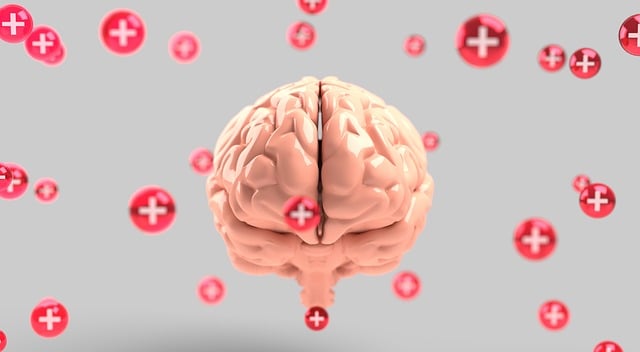Lafayette Neuro Disorders Therapy (LNDT) prioritizes risk assessment as a cornerstone of its therapeutic approach, focusing on patient safety and well-being. By evaluating patient history, mental state, and treatment triggers, LNDT creates a secure environment. They enhance therapy effectiveness with self-care routines, mindfulness meditation, and trauma support services tailored to individual needs. Therapists at LNDT are encouraged to practice self-awareness, resolve conflicts, and cultivate compassion to mitigate risks, fostering a healthier work environment and improving client care while prioritizing their own emotional well-being.
Mental health professionals face unique challenges, necessitating a thorough risk assessment. This article explores essential aspects of risk management within the context of Lafayette Neuro Disorders Therapy (LNDT). We present a structured framework for understanding risk assessment, guiding professionals through identifying potential hazards and vulnerabilities specific to mental health settings. Furthermore, best practices for mitigating risks are highlighted, offering valuable insights into safeguarding patients at LNDT.
- Understanding Risk Assessment in Mental Health: A Framework for Lafayette Neuro Disorders Therapy
- Identifying Potential Hazards and Vulnerabilities: Strategies for Professionals
- Mitigating Risks: Best Practices for Safeguarding Patients at Lafayette Neuro Disorders Therapy
Understanding Risk Assessment in Mental Health: A Framework for Lafayette Neuro Disorders Therapy

Risk assessment is a critical component of mental health practice, offering a structured approach to identify and mitigate potential hazards within the therapeutic setting. For Lafayette Neuro Disorders Therapy (LNDT), this process serves as a robust framework to ensure the well-being of both patients and clinicians. By adopting a comprehensive risk assessment strategy, LNDT aims to foster a safe environment conducive to effective therapy.
This involves meticulously evaluating various factors such as patient history, current mental state, treatment methods employed, and potential triggers for distress. For instance, developing a self-care routine for better mental health is integral to the assessment, considering individuals’ coping mechanisms and resilience. Additionally, incorporating mindfulness meditation techniques and trauma support services can be tailored to address specific risks, enhancing the overall therapeutic experience at LNDT.
Identifying Potential Hazards and Vulnerabilities: Strategies for Professionals

Identifying potential hazards and vulnerabilities is a cornerstone of effective risk assessment for mental health professionals. At Lafayette Neuro Disorders Therapy, we recognize that navigating complex emotional landscapes can expose practitioners to unique challenges. To mitigate risks, professionals must proactively cultivate self-awareness, engaging in regular reflection on their own emotional well-being promotion techniques and compassion cultivation practices.
By integrating conflict resolution techniques into their practice, therapists can further safeguard themselves from potential harm. This proactive approach not only fosters a healthier work environment but also enhances the quality of care provided to clients. Through continuous learning and self-care strategies, mental health professionals can build resilience, ensuring they remain equipped to support their clients effectively while prioritizing their own emotional well-being.
Mitigating Risks: Best Practices for Safeguarding Patients at Lafayette Neuro Disorders Therapy

At Lafayette Neuro Disorders Therapy, mitigating risks is a top priority to safeguard patients’ well-being. We understand that mental health professionals are often exposed to high-stress environments, which can impact their own mental health and, consequently, their ability to provide effective care. To counter this, we’ve implemented several best practices. These include structured stress reduction methods tailored to individual needs, regular staff training on anxiety relief techniques, and fostering a supportive work environment that encourages open dialogue about challenges faced. By prioritizing our therapists’ mental health, we ensure they can offer the highest level of care, enhancing each patient’s journey towards improved emotional well-being.
Additionally, Lafayette Neuro Disorders Therapy focuses on confidence-boosting interventions for both staff and patients. Our professionals are equipped with advanced techniques to manage their own stress levels, enabling them to create a calm, secure space for therapy sessions. This approach not only benefits the therapists but also translates into more effective treatment plans. By integrating these strategies, we aim to minimize risks associated with work-related stress and burnout, ensuring our patients receive consistent, compassionate care throughout their journey at Lafayette Neuro Disorders Therapy.
Mental health professionals, like those at Lafayette Neuro Disorders Therapy, operate in a complex environment where understanding risk assessment is crucial. By identifying potential hazards and vulnerabilities through strategic practices, therapists can effectively mitigate risks and create a safer, more nurturing environment for their patients. Adopting best practices ensures the well-being of both practitioners and clients, fostering a healthier and more productive therapeutic setting at Lafayette Neuro Disorders Therapy and beyond.














